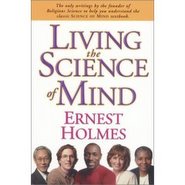A good starting point in discussing this pesky word Truth, would be to define the term. Truth, in a spiritual context, refers to all teachings, concepts, thoughts and actions that are logically consistent with and exemplative of the one principle which states: There is only God (e.g., One, Mind, Consciousness, Self). The Charles Fillmore statement above refers to Truth in that sense, and his instructions then were to read the Bible in a manner (discern the Truth in Christianity) that allowed you to understand its passages from the standpoint of that one principle. That would mean you would read a passage from the Bible and interpret or understand it by asking yourself the question: If I believe that there is only God, then what would that passage mean in light of that belief? Charles further instructed people to live according to that interpretation and make it operative in their lives, thus allowing themselves to come to know that it is indeed Truth (and prove it).
The knowing of Truth comes only through experiencing it, so indeed for us to know it, we must experience it. In that experience, we realize that Truth does not necessarily change the situations and acts of those about us, but it gives us a new perspective from which to understand them. Re-phrasing a quote of Vernon Howard’s: Truth understands non-truth, but non-Truth does not understand Truth. That understanding is such that we lose all fear about whatever is happening around us, thus keeping us then in constant conscious communication with God. This gives us ready access to whatever we need to prevail over what appears to be a problem.
Another way to say that would be that if our thoughts, words and action reflect those of a person who knows there is only God, then we are in Truth. If our thoughts, words or action reflect a person who sees himself/herself as separate from God, then we are not in Truth. Jesus’ message was totally consistent with this one principle and utilized many different ways of stating it (scripture, parables, scenarios). That is the through-line in the New Testament, one message stated over and over again, as well as modeled by the wayshower, Jesus the Christ — There is only God.
The point of a spiritual practice is for us to operate in our lives using any and all circumstances to prove Truth to ourselves. In other words, in such a practice you would be continually asking yourself if your current beliefs, thoughts and actions reflect your awareness of there is only God or are they instead a statement for the fact that there is God AND you? In asking, we begin to understand what is true as opposed to what we have told ourselves is true, but is not true. The "illusion" that we live, that all mystical literature and scripture refers to, is due to us operating from a perspective of separation rather than understanding there is only One. Operating from that perspective warps our view of reality by limiting our experience of the world to only that which our sense organs bring us and even limiting the activity of those sense organs to boot. So we perceive the world and the universe and all thought and action occurring within the universe from a skewed and misleading perspective. To free ourselves from that limiting action is the end result of one’s spiritual practice. We are God expressing and nothing changes that, not even our refusal to see it is so. But if we avail ourselves of a spiritual practice that opens our minds and senses to the Truth (There is only God), then this skew and limiting behavior drops away and we are able to see that which has always been — we are able to see the Truth.
So what is this Truth that we’d be seeing? It is really the seeing of all the ways we tell ourselves that we are separate, that we are Mary or Bob or Sue rather than God expressing. Take for example a statement that is often heard in spiritual circles: I have a calling to be a minister; or I am led to leave this job. At one level of awareness where our consciousness is still limited by the ego’s grasp on it, we could interpret that as: I, Billy, am supposed to do or be a particular thing. But if, as a student of truth, we were to hold that statement — I have a calling — up to the light of the one principle: There is only God, we quickly see that our interpretation is a statement for separateness, for who is the "I" that feels this calling. Certainly God doesn’t feel a calling to be God. So by being curious about ourselves and our thoughts, we begin to see how skewed they are toward perpetuating this sense of separateness. Had we interpreted the feeling that we originally sensed that we called ‘a calling or being led,’ as the voice of Spirit yearning to express more fully, we would have noticed our feeling of separateness or special ness dissipate, giving us a moment of freedom from the bonds of ego and allowing us to remember, if only for a moment, who in truth we are. And further we would have realized that that interpretation points us back into ourselves, to the silence within us, to divine consciousness. We may, in the end, find ourselves following the same trail as 'the calling' pointed to, but we will be coming from a very different motivation, one that keeps leading us back to Oneness rather than deeper into ego. Yes, truth can be subtle and ego can be tricky. But the Real of us is equal to any task — "The inexhaustible resource of Spirit is equal to every demand—"
Saturday, July 22, 2006
Subscribe to:
Post Comments (Atom)




No comments:
Post a Comment